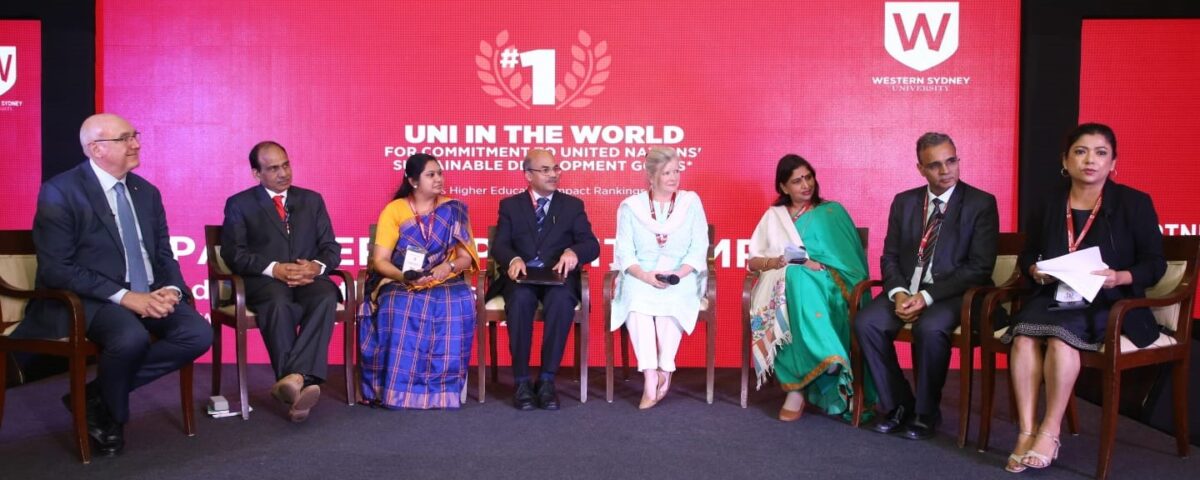Nirmesh Singh
New Delhi, 22 Nov 2022 : Western Sydney University on Wednesday signed Agreements with seven Indian State Agriculture Universities, part of the agricultural education, research and extension system headed by the Indian Council for Agricultural Research (ICAR). The Agreements were signed in New Delhi at Western Sydney University’s SDG Forum, themed “Partnership with impact – advancing the SDGs”
Ms Sarah Storey, Australia’s Deputy High Commissioner to India, opened the SDG Forum.
“These smart agriculture partnerships and scholarships are an important demonstration of the deepening links between India and Australia”, she said.
Speaking at the forum, said Dr. Rakesh Chandra Agrawal, Deputy Director General (Agricultural Education), Indian Council of Agricultural Research (ICAR) said, “We now have 23 partnership agreements between State and Central Agricultural Universities and Western Sydney University which enables research and capacity-building at scale. In addition to Dual Masters and PhDs with scholarships, the partnerships are leading research in climate smart farming systems in India and Australia.”
Keynote speaker Professor Barney Glover AO, Vice-Chancellor and President at Western Sydney University highlighted that Western Sydney University was one of the earliest universities to become a signatory to support the SDGs and is deeply committed to expanding partnerships in India that advance sustainability.
“This marks an important expansion of our AUD15 million scholarship commitment to Indian State and Central Agricultural Universities and other partners. 50 PhD scholarships will help to scale up climate smart agriculture research to boost yields for farmers and strengthen food security in India,” he said.
Panelists at the SDG Forum discussed the role of higher education partnerships and collaborations with corporate, government, education and NGO organisations, in addressing the 17 SDGs that aim to end global poverty, zero hunger, responsible consumption and production, water use efficiency, improve access to health and education and build strong institutions and partnerships by 2030. The panel also featured research, education and training partnerships in water and food security which are making a difference to communities.
The Western Sydney University has set bold targets for its campus operations to have 100 per cent renewable energy by 2025 and to achieve carbon neutrality by 2023.
According to UNFCCC( United Nations Framework Convention on Climate Change), climate-smart agriculture encompasses the three main dimensions of sustainable development: economic, social and environmental, i.e. sustainably increasing agricultural productivity and incomes; adapting and building resilience to climate change; and reducing and/or removing greenhouse gas emissions. It is an approach for developing agricultural strategies to secure sustainable food security under climate change.
However, it is to be noted that India had objected to linking action on emissions to agriculture at the UNFCCC’s COP 27 summit that was held in Sharm El-Sheikh, Egypt last week.
Speaking at the closing plenary of the United Nation Climate Change Conference (COP 27), India’s Minsiter of Environment, Forest and Climate Change Shri Bhupender Yadav had said, “We note that we are establishing a 4 year work program on climate action in agriculture and food security. Agriculture, the mainstay of livelihoods of millions of smallholder farmers, will be hard hit from climate change. So, we should not burden them with mitigation responsibilities”.
___________________________________________________________________________




